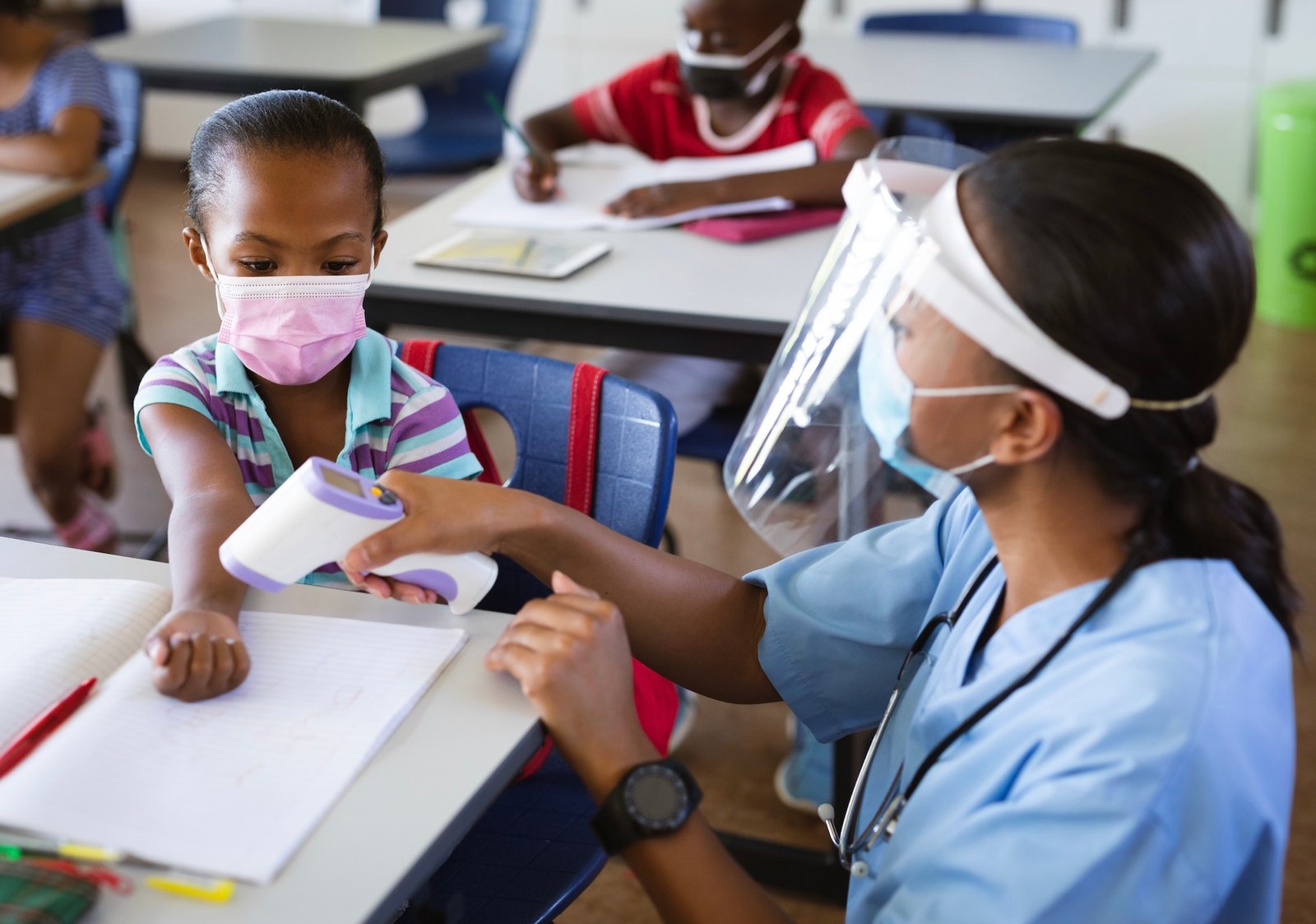South Africa’s School Health Policies:
South Africa’s school health policies are designed to ensure the physical, mental, and social well-being of students within the education system. These policies are underpinned by various national guidelines and are part of broader initiatives to improve children’s health and educational outcomes. Here are the key components of South Africa’s school health policies:
- Integrated School Health Programme (ISHP): Launched in October 2012, the ISHP represents a collaboration between the Departments of Health, Basic Education, and Social Development. Its primary goal is to provide comprehensive health services in schools, which include screening for health barriers to learning (like poor vision, hearing impairments, and oral health problems), immunizations, and the management of chronic diseases. The ISHP also focuses on promoting healthy lifestyles and providing reproductive health services as children grow older.
- Nutrition and School Feeding: The National School Nutrition Programme (NSNP) aims to enhance the learning capacity of learners through the provision of healthy meals at schools. This program serves nutritious meals daily to millions of learners nationwide, particularly in poorer regions, to combat hunger and bolster school attendance and concentration.
- Physical Education and School Sports: The policy on physical education is integral to promoting health and physical activity among students. Regular physical activity is encouraged through structured sports and physical education lessons, which are considered crucial for fostering a healthy lifestyle and preventing diseases like obesity.
- Mental Health and Social Services: Recognizing the impact of mental health on learning, South African school health policies also focus on providing support for emotional and psychological well-being. Schools have access to social workers and psychologists who work with students facing social and psychological challenges, including those arising from abuse, violence, and family disruptions.
- Sexual and Reproductive Health: Older students receive education on sexual and reproductive health as part of the life skills curriculum. This includes information on HIV/AIDS, sexually transmitted infections, and pregnancy prevention, aiming to equip students with knowledge and resources to make informed decisions.
- Hygiene and Environment: Policies also cover the importance of maintaining clean and healthy school environments. This includes regular health and hygiene education, access to clean water and sanitation facilities, and the implementation of safety measures to create a conducive learning environment.
These policies are evidence-based, aligning with international standards and recommendations from organizations like the World Health Organization. They aim to address the holistic needs of students, ensuring that barriers to health do not impede educational achievements.
---Advert---




